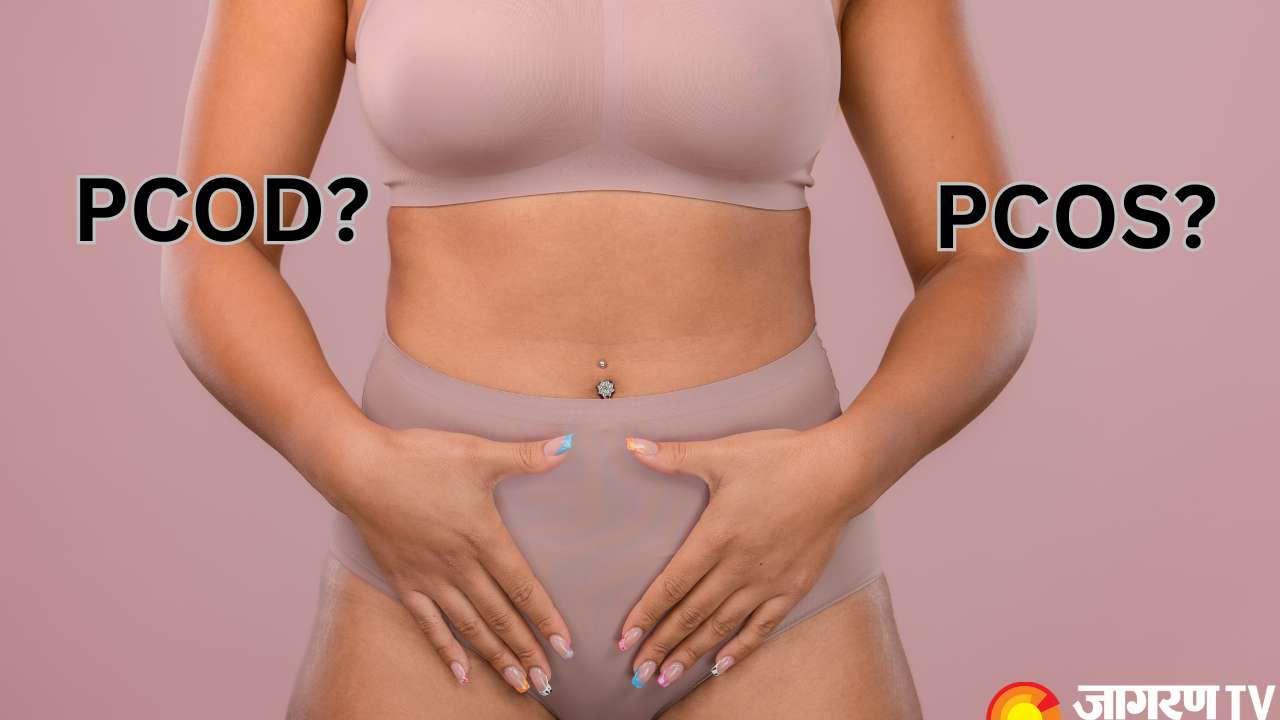How to Differentiate Between PCOD and PCOS Through Symptoms, Lifestyle, and More

PCOD and PCOS: People often get confused by the terms Polycystic Ovary Syndrome (PCOS) and Polycystic Ovary Disorder (PCOD), which are frequently used interchangeably. These are different conditions, though, with nuances, that impact women’s reproductive health. While both disorders have a common feature of tiny cysts on the ovaries, there are a few significant differences between the two.
Let us know about PCOD and PCOS in detail.
Polycystic Ovary Disorder (PCOD)
PCOD is distinguished by the presence of multiple small cysts, which are fluid-filled sacs, on the ovaries. While the term “polycystic” implies the presence of cysts, it is important to note that cysts do not develop in everyone with PCOD. The disorder is primarily hormonal in nature, involving an imbalance in sex hormones, specifically androgens (male hormones) and estrogen.
An excess of androgens, irregular menstrual cycles, and anovulation (the absence of ovulation) are among the main characteristics of PCOD. Acne, weight gain, and hirsutism (excessive hair growth in areas where men normally grow hair) are symptoms of this hormonal imbalance. Insulin resistance, a disorder in which the body’s cells do not react to insulin as well as they should, resulting in elevated insulin levels, is frequently linked to PCOD.
Polycystic Ovary Syndrome (PCOS)
PCOS is a broader term that includes ovarian changes as well as a variety of body symptoms associated with hormone imbalances. PCOS is identified on the basis of the following symptoms:
-
Anovulation or irregular menstrual cycles
-
Signs of excess androgens, or hyperandrogenism, can be biochemical or clinical.
-
Velvetous ovaries on ultrasonography
Many features of PCOD and PCOS are similar, such as ovarian cysts, irregular periods, and symptoms like hirsutism and acne. But PCOS affects more than just the reproductive system; it frequently involves metabolic problems like insulin resistance, which raises the risk of type 2 diabetes and cardiovascular illnesses.
Key Difference Between PCOD and PCOS
The main difference between PCOD and PCOS is the severity of each condition. PCOD mainly refers to the ovarian component, emphasizing hormonal imbalances and cyst presence. However, PCOS is a syndrome that refers to a group of symptoms that go beyond the ovaries and can affect different bodily systems. PCOD has no effect on a woman’s ability to conceive; with treatment, a woman with PCOD can ovulate and become pregnant on her own with medical assistance. PCOS has a major impact on women’s fertility. Women with PCOS have irregular ovulation, which makes it difficult for them to become pregnant. If they get pregnant, they could be at risk of miscarriage, premature birth, or pregnancy complications.









